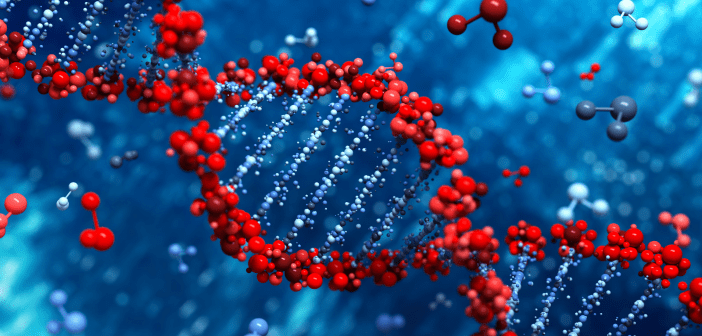Antibody alternatives for analyzing biomarkers in blood samples

A novel electronic biomolecular analysis technique, which uses synthetic nucleic acid-based reagents and high-performance signal transduction with molecular pendulums, has been developed. The method was established to analyze cardiac biomarkers in whole blood samples obtained from patients suffering from chronic heart failure.
The research team led by Shana O. Kelley from the University of Toronto, (Canada), created an electronic DNA aptamer-based biosensor, which can identify the presence of cardiac biomarkers in whole blood samples, without the use of additional reagents. Biomarker proteins are typically detected with the use of antibodies to target and bind to them in complex mixtures. However, the problem arises that since antibodies are proteins themselves, their design and production process can be rather complex and time-consuming. DNA aptamers are capable of binding specifically targeted molecules and recognize marker proteins akin to antibodies and have proven to be more adaptable and easier to design in laboratories.
Kelley explains,
“DNA has the most predictable and programmable interactions of any natural or synthetic molecule.”
You may also be interested in:
- ELISA array-based immunoassay for multiplex detection of osteoporosis-relevant biomarkers
- Fluorescent biosensor shines light on the activity of the rare-earth metal manganese
- A review on ZnO-based electrical biosensors for cardiac biomarker detection
Using chronoamperometric measurements, the team created a chip-based device that can identify specific marker proteins within intricate samples, such as blood. The device uses a nanoscale sensor system that functions like a molecular ‘pendulum’. This system measures any additional weight that a protein adds to the pendulum, which is composed of a DNA strand connected to an electrode.
To build their aptamer-based sensor, the research team created a DNA aptamer that specifically detects the presence of B-type natriuretic peptide (BNP). BNP is an established biomarker used for the detection of cardiovascular disease. The DNA aptamer was connected with the previously described DNA pendulum strand and connected to the gold electrode to construct the molecular pendulum-based sensor.
The finalized biosensor successfully detected the presence of BNP, even in complex mixtures including unprocessed whole blood taken from cardiac patients. Kelley and her colleagues report that the sensitivity of the aptamer-based system equaled that of established antibody-based detection systems. The research team proposed that additional research into the use of DNA aptamers for laboratory-independent diagnostics is crucial, and this new sensing platform may serve as a beneficial tool for the development of promising biosensing technologies.
Sources: Mahmud A, Chang D, Das J, et al. Monitoring cardiac biomarkers with aptamer-based molecular pendulum sensors. Angew. Chem. (2023), doi: 10.1002/anie.202213567; www.eurekalert.org/news-releases/986473





